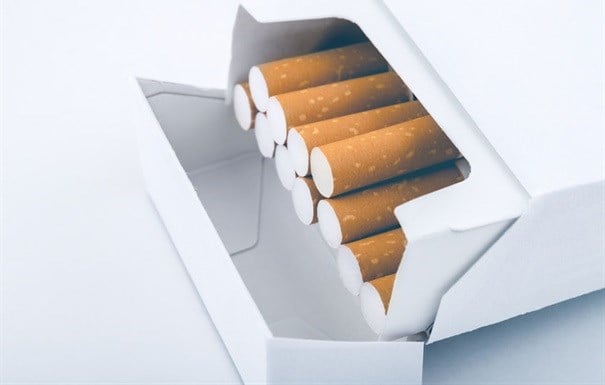
Related
Top stories


EducationFrom adversity to opportunity: African education’s revival strategies
Sanjeev Mansotra 18 hours



Marketing & MediaThe Odd Number named Financial Mail AdFocus Mid-Sized Agency of the Year
The Odd Number 23 hours

More news













Be honest. Tell us, as consumers, if we are to be permanent wards of the State and stop wasting time trying to convince us that we need to take personal responsibility for our decisions.
‘Freedom’, by necessity, means the freedom to make choices deemed ‘bad’ by certain intellectual elites or popular masses. That includes the decision to smoke a cigarette as often as you want. If freedom is about doing only things the intelligentsia deem ‘good’, then it is quite a useless concept indeed.
The assumption made by many in the anti-choice lobby is that health is objectively invaluable. This assumption clearly underlies Yussuf Salojee’s reasoning when he praises Australia’s reliance on “extensive scientific evidence” to implement its plain packaging laws. However, ordinary human experience disproves this assumption.
We take risks with our health on a daily basis, trading health and longevity for a multitude of other considerations, such as recreation (eating delicious, fatty foods, or indulging in dangerous physical exploits) and career advancement (working in high-stress jobs). Even when we opt to sleep in late, rather than go to the gym, we sacrifice health to obtain something else.
As Rob Weir, American astrophysicist and aphorist, wrote, “the man who lives only for longevity has not lived.”
It should be no surprise, then, that one of the first rules of economics is that value is entirely subjective, which includes the value at which consumers regard their own health. And because it is subjective, it cannot be centrally planned, either from an ethical or economic point of view. There is nothing objectively ‘invaluable’ about health.
The argument always paraded in favour of smoking regulations is that the State – especially the health department – must inevitably bear the burden of the unhealthy choices that consumers make and thereby justify interventions such as plain packaging.
This would be a valid argument if South Africa had an opt-in state health system. However, consumers have no choice. The State’s health mandate is foisted upon us regardless of whether we want it. Government could, thus, to avoid bearing the burden of sickly smokers, let consumers opt-out of certain medical care related to unhealthy choices, or, in addition to existing taxes, have them pay a surcharge into the system. But violating their human dignity by denying them the ability to choose, is not a progressive route to take.
In fact, it is an infinitely regressive route because once the precedent is set that the State may legitimately outlaw certain ‘bad’ choices, every other conceivable ‘bad’ choice will also become outlaw able.
Indeed, it follows, logically, that if the State can justly enforce packaging on cigarettes that highlights the dangers of smoking, then surely it should also force automobile manufacturers to paint images of mangled corpses onto the bodies of new vehicles to warn us of a very real possible danger. After all, driving a car on South African roads is, if ever there were an objective measure of a bad decision for one’s health, a very bad decision. I dare say, however, that none of us enjoy driving around in a car decorated with images of gore and death.
Before I am accused of arguing the absurd, remember that this is how plain packaging for cigarettes was arrived at. The precedent was set, long ago, when it became part of the State’s mandate to ensure the health of citizens. How it should go about ensuring this health is not defined in any constitution anywhere in the world, meaning that it is an open-ended mandate. And there is virtually no concrete reason to believe that plain packaging for cigarettes is where the State intends to stop.
Free choice is not a utopian ideal from which a perfect, healthy and happy society would inevitably result. On the contrary, a truly free society would labour under many of the same problems we experience today. But free choice is the precondition for society to develop along voluntary and non-coercive lines, wherein human dignity is respected. The rule of law, as a jurisprudential concept, is the intended barrier between the tyranny of government interference and the free choice of individuals.
South Africa’s choice is binary in this regard: we are either for or against respecting human dignity. By continuing to replace personal responsibility with the custodianship of the State, we are opting against human dignity and to dumbly continue down the road to serfdom.